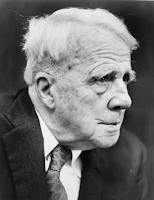The World
I saw eternity the other night
Like a great ring of pure and endless light,
All calm as it was bright;
And round beneath it, Time, in hours, days, years,
Driven by the spheres,
Like a vast shadow moved, in which the world
And all her train were hurled.
The doting lover in his quaintest stran
Did there complain;
Near him, his lute, his fancy, and his flights,
Wit's sour delights,
With gloves and knots, the silly snares of pleasure,
Yet his dear treasure,
All scattered lay, while he his eyes did pour
Upon a flower.
The darksome statesman, hung with weights and woe,
Like a thick midnight fog, moved there so slow
He did nor stay nor go;
Condemning thoughts, like sad eclipses scowl
Upon his soul,
And clouds of crying witnesses without
Pursued him with one shout.
Yet digged the mole, and, lest his ways be found,
Worked undergrounds,
Where he did clutch his prey. But one did see
That policy:
Churches and altars fed him; perjuries
Were gnats and flies;
It rained about him blood and tears, but he
Drank them as free.
The fearful miser on a heap of rust
Sat pining all his life there, did scarce trust
His own hands with the dust;
Yet would not place one piece above, but lives
In fear of thieves.
Thousands there were as frantic as himself,
And hugged each one his pelf:
The downright epicure placed heaven in sense,
And scorned pretense;
While others, slipped into a wide excess,
Said little less;
The weaker sort, slight, trivial wares enslave,
Who think them brave;
And poor, despiséd Truth sat counting by
Their victory.
Yet some, who all this while did weep and sing,
And sing and weep, soared up into the ring;
But most would use no wing.
"O fools!" said I, "thus to prefer dark night
Before true light!
To live in grots and caves, and hate the day
Because it shows the way,
The way which from this dead and dark abode
Leads up to God,
A way where you might tread the sun and be
More bright than he!"
But, as I did their madness so discuss,
One whispered thus:
"This ring the bridegroom did for none provide,
But for His bride."
--Henry Vaughan
This is Vaughan's Divina Commedia in miniature. The opening seven lines are among the most stunning I know of: They make me recall what the nighttime sky was like when I lived out of range of urban light pollution. But the satirical portraits that follow aren't bad either. Vaughan was a Welshman, which maybe explains my fondness for his poetry -- I'm Welsh on my mother's side of the family.





